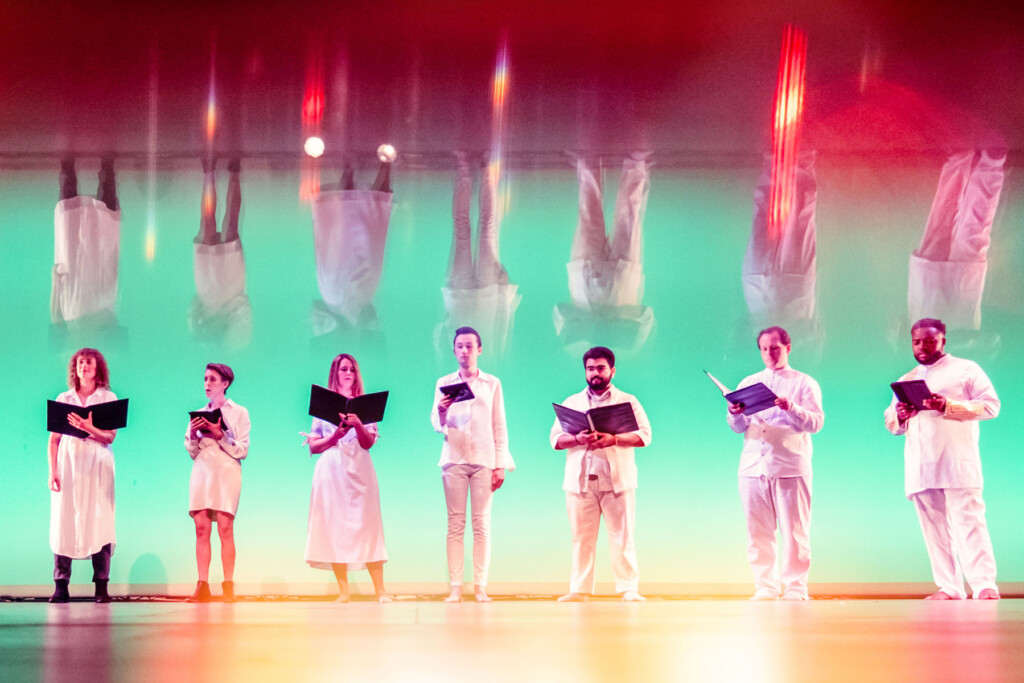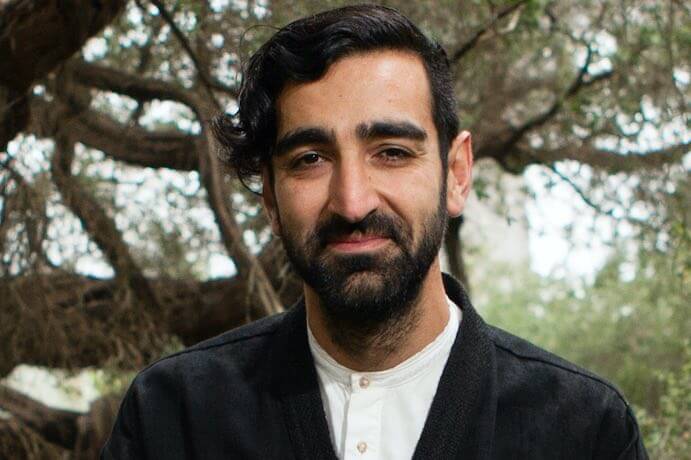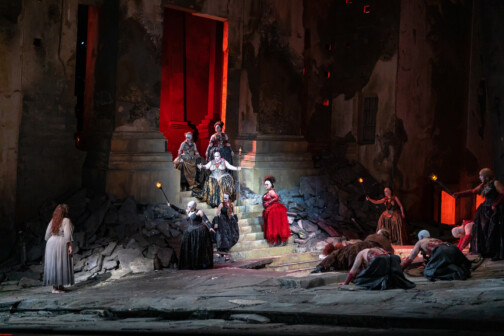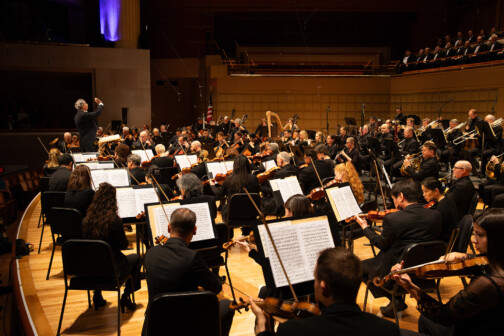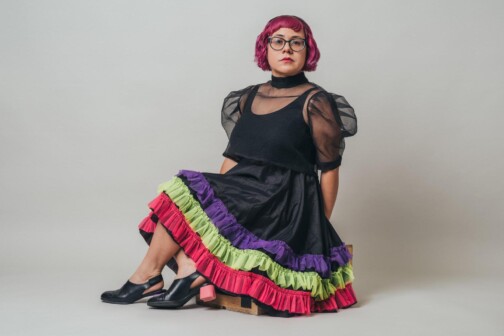What happens to you when you change your mind?
This weekend, a concert by the Verdigris Ensemble will present all sorts of interesting questions and experiences. New music by Iranian American composer Sahba Aminikia will blend influences of Middle Eastern tradition, Eurasian folk music, and American minimalism. Poetry from celebrated mystic Rumi will address themes of love, mentorship, and values. In the background, visual artist Kevork Mourad will be painting visuals to go along with the music and words—and he’ll be painting them live. In the audience, Verdigris Ensemble has invited hundreds of Middle Eastern refugees living in the Dallas area to sit alongside paying guests.
But at the center of this fascinating event is an experience many of us have shared: the experience of questioning and changing the values you once held.
Aminikia’s work is called Shams. It’s scored for choir—that’s the Verdigris Ensemble, singing the poems of Rumi—and string quartet, which at this concert will be members of the Dallas Symphony Orchestra. Mourad has created background canvases to fit with the poetry, and he will be painting additional images onto them during the performance using a projection system. (The Crow Museum of Asian Art played a crucial role in arranging the visual elements.)
Shams is the story of Rumi’s encounter with his teacher, Shams Tabrizi. In the course of a brief, heated mentorship, Rumi felt himself transform from a bookish jurist and sermon-giver to a mystic and ascetic. Aminikia’s music reconstructs that story of friendship and change, and it includes newly commissioned translations by Zara Houshmand of the original poems. The work was inspired by his conversations with Sam Brukhman, artistic director of the Verdigris Ensemble. The two talked about global politics, and when Aminikia succeeded in changing Brukhman’s mind about an issue, the two started asking how they could reflect the experience of a changing mind in an artistic way.
“Shams, for us, takes this microrelationship between Rumi and Shams Tabrizi and zooms it out to the macro level,” says Brukhman. “What can we learn from Rumi and Shams? Dallas, we know from The Accommodation, is a historically racist city. It’s been divided. How do we create areas of perspective change?”
For Verdigris’ singers, the perspective change was quite literal. They are singing the poems in Farsi (a narrator will read them in English between musical interpretations). None of the ensemble’s performers are Persian, and although they bring a variety of experiences to their work—including operatic, religious, and baroque singing—Shams represents something completely new for them.
“It breaks down all of our expectations,” alto Katrina Burggraf says. “It breaks down anything we’ve been trained to do. All we did at the first rehearsal for the first hour was read the poetry we were going to sing, and talk about what it meant to us. At first, it was very personal. ‘This speaks to me because of what happened to me.’ By the end it became more about what it means to the community.” Later, they moved on to the musical challenges of singing in an unfamiliar language, going through pronunciations syllable by syllable on video calls with the composer.
In Rumi’s poetry, changing your mind and your perspective is not necessarily a political act. It’s a key part of the experience of love.
“Love is something that people experience in different amplitudes throughout their life, but true love, the type of love that Rumi experienced, that is a kind of rejection of who he was before meeting Shams,” Aminikia says. “That is the form of love you feel when you submit to someone, when you see yourself from the perspective of another person.”
In both Rumi and Shams Tabrizi’s words, the metaphor of a mirror comes up frequently: that the love of another person is a mirror in which you can see yourself more clearly.
Verdigris Ensemble is is also collaborating on educational workshops surrounding the event. Aminikia and Mourad will hold workshops with students at UT Dallas, UNT Dallas, and Booker T. Washington High School. Verdigris singers will continue their mentorship program with students at Dallas ISD’s W.E. Greiner Exploratory Arts Academy. And for Shams in particular, the ensemble has made connections with Persian, refugee, Muslim, and Ba’hai communities around North Texas. Almas Muscatwalla, a member of the Thanks-Giving Foundation’s board of directors, is arranging four buses to transport refugees and other community members to the performances, which they will attend for free.
Typically, artists doing interviews to tease an upcoming concert talk about how the music challenged or excited them, and why the concert will be fun or entertaining. My conversations with the creators and performers of Shams have been very different. Uniquely, everyone involved talks about something deeper: how the project has changed them.
“This has been almost therapeutic for the ensemble,” Brukhman says. “The rehearsals that we have had have, every time, generated a level of intention and devotion to the music and care that I don’t think I’ve ever seen. Ever.”
Burggraf compares the singing experience to Verdigris’ 2019 project, Faces of Dallas, which presented the life stories of Dallasites and their relationships to the city.
“I sang those words, and I felt kind of guilty because I didn’t have that experience,” Burggraf says. “I didn’t feel like my voice was worthy of the power of those words. But through all of this growth, this path that Verdigris has been on, I feel like we are more the instrument. This one feels collectively therapeutic.”
Aminikia found the composing project liberating, too. “Coming from the new music world, that everything is about intellect and is about academia and new sounds, the audience seems to be the last thing they think about,” he says. “I want my audience to have a holistic experience. That comes from the nature of Rumi’s words. His ideas are all about liberation and moving from intellect and academia to action, music, poetry, and love.”
April 14–16, Moody Performance Hall, 2520 Flora St. Learn more and buy tickets here.
Author



